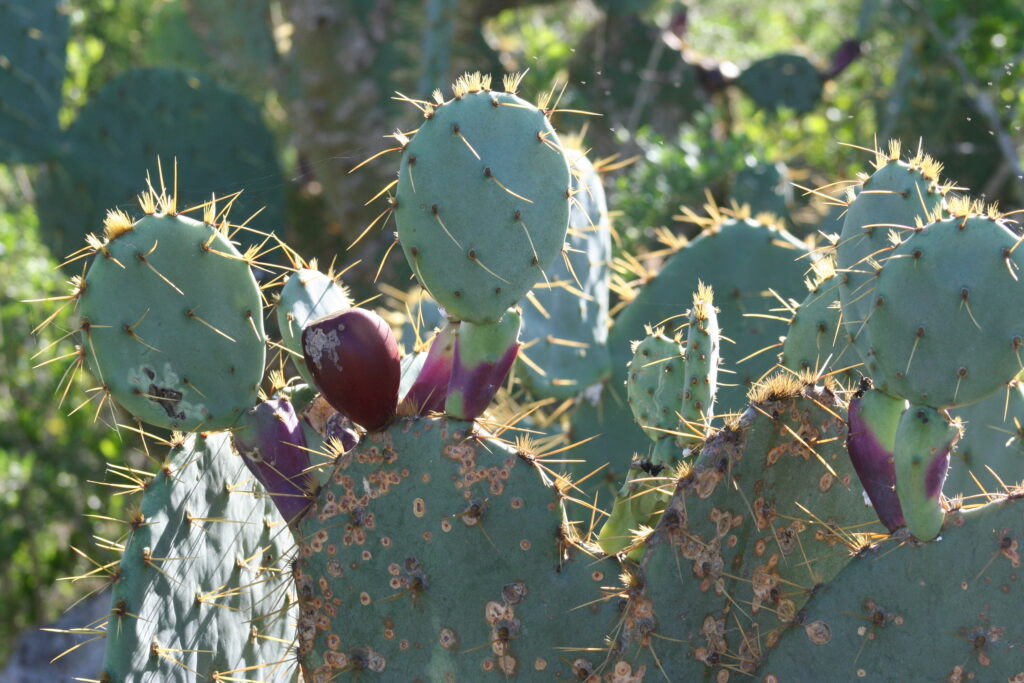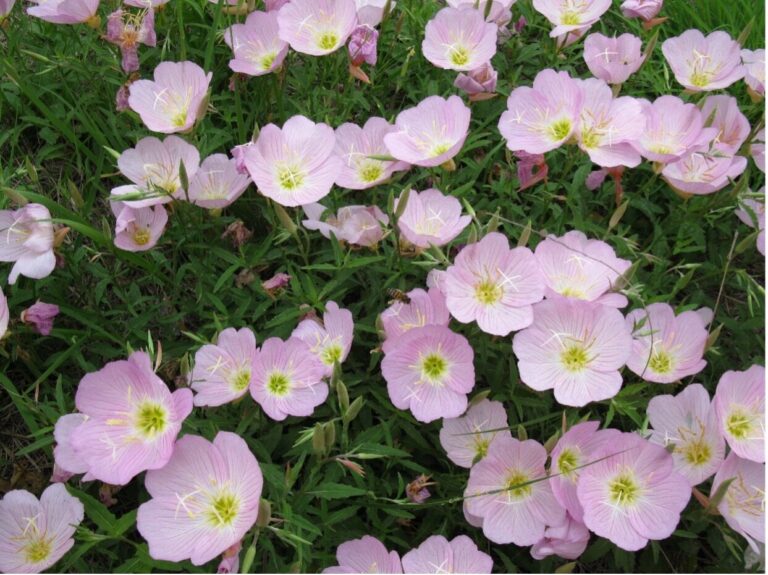Last Updated on January 30, 2024
Photo Credit: Lee Marlowe, Sustainable Landscape Ecologist for the River Authority
April was designated National Native Plant Month by a bipartisan resolution in 2021 and has since become a month to celebrate the beauty and benefits of our diverse native Texas plants. Texas has over 5,000 native plant species, which can be found in incredibly diverse habitats throughout the state. The San Antonio River Basin comprises many ecosystems where these diverse plant communities thrive and contribute to clean, safe, and enjoyable creeks and rivers. Join us as we celebrate five native species, from the prickly pear cactus to the chile pequin!
The State Plant of Texas is the prickly pear cactus. There are many species of prickly pear cactus in Texas. Their large, beautiful blooms can be seen in various colors, including bright yellow, orange, and combinations of red and yellow. There can even be multiple colors of flowers on the same plant! The Prickly pear’s fruits, known as “tunas,” are edible, as are the pads, known as nopalitos or nopales. These plants have been identified by the Xerxes Society for Invertebrate Conservation as having exceptional value for native bees.
Pollinators feast on a pricky pear’s nectar!
The State Tree of Texas is the pecan. Pecans are some of the last trees to leaf out each spring, and it is often said that winter isn’t over until the pecans leaf out. Pecan nuts, rich in protein, are a prized food for many people and wildlife. Pecan nuts from the wild native trees taste the best even though they are smaller and take much greater effort to extract from their shells. Pecan serves as a larval host for the Gray Hairstreak butterfly, and the nuts provide food for birds and mammals.
Pecan (Carya illinoinensis)
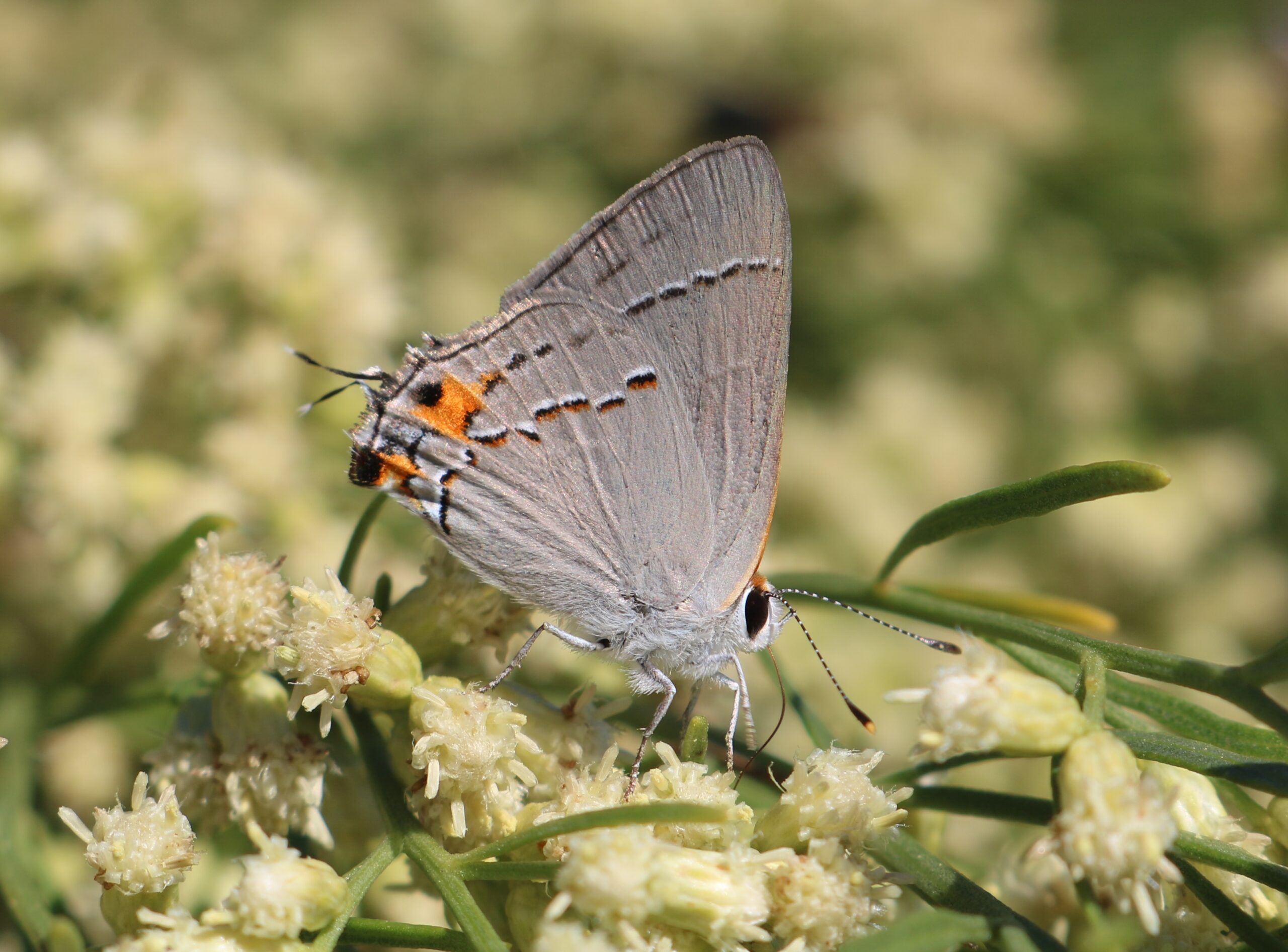
Gray Hairstreak (Strymon melinus)
The State Native Shrub of Texas is the Texas purple sage. A favorite in Texas landscapes for its beauty and durability, Texas Purple Sage is also called Cenizo, Barometer Bush, and Silverleaf. It usually blooms many times during the growing season and often becomes completely covered in bright purple blooms that stand out in contrast to the silvery leaves. It loves good drainage and is extremely drought hardy. It serves as a larval host for the Calleta Silkmoth and Theona Checkerspot butterfly, attracts many other species of butterflies, and offers an excellent protective cover for birds throughout the year.
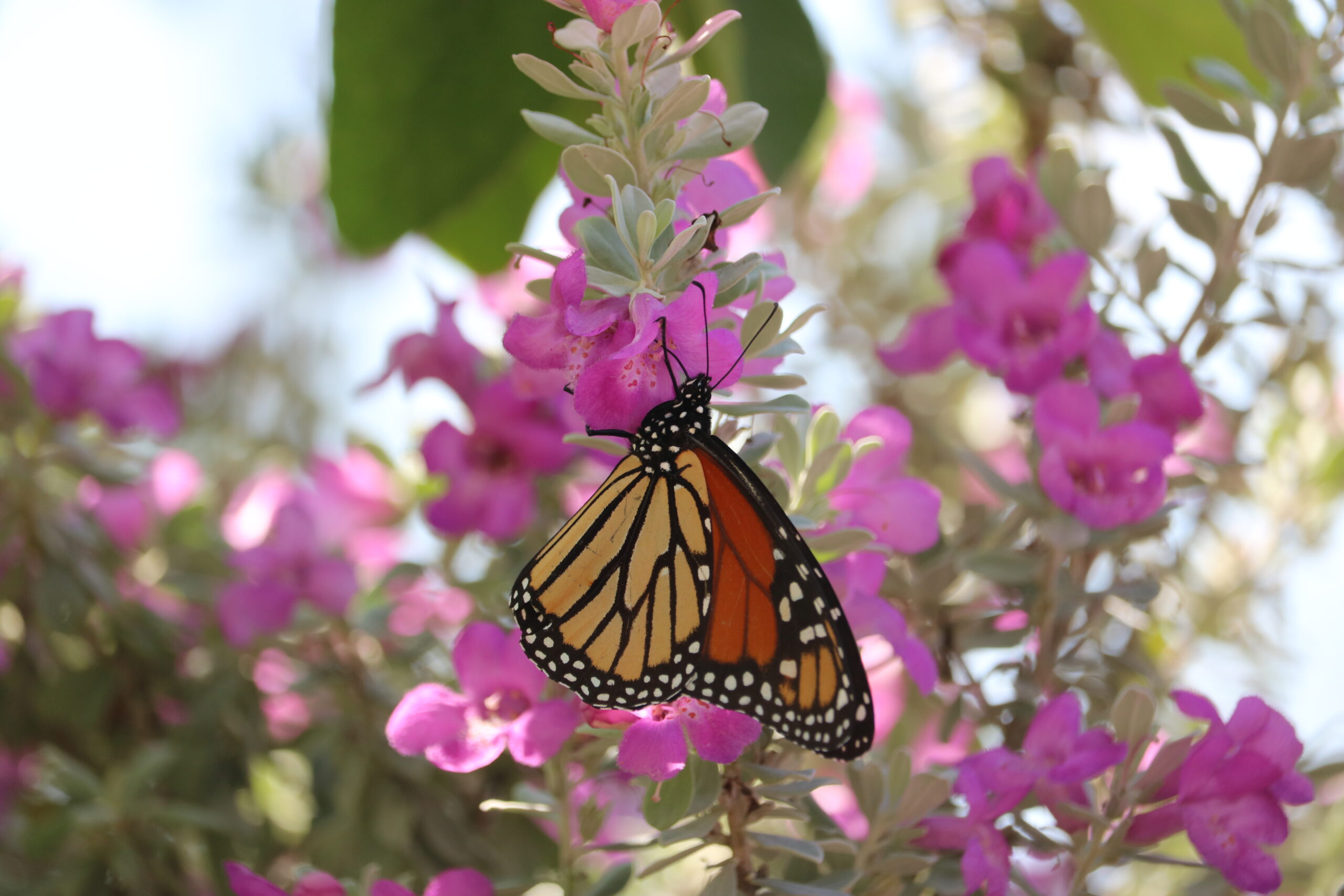
Texas purple sage (Leucophyllum frutescens)
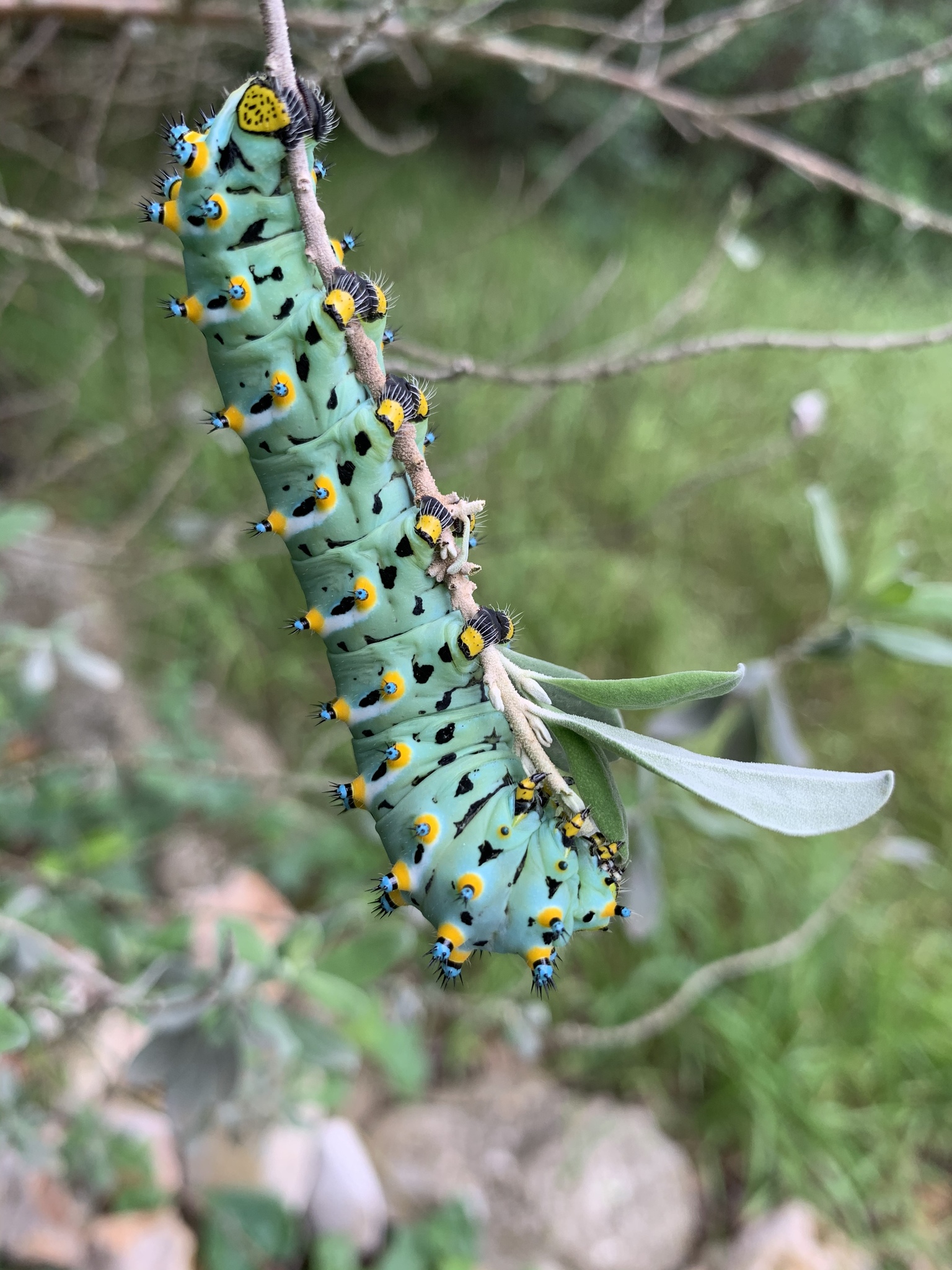
Calleta Silkmoth larva (Eupackardia calleta)
The State Grass of Texas is sideoats grama (Bouteloua curtipendula). This native grass is easy to recognize when covered in seeds because it produces dense clumps of stems lined with seeds hanging from one side. It can bloom from June through November, and its ornamental quality makes it desirable for many gardens. It also serves as a larval host for two butterfly species, and its leaves are used for nesting material. Plus, it is highly resistant to browsing deer, and the seeds provide food for birds and mammals.
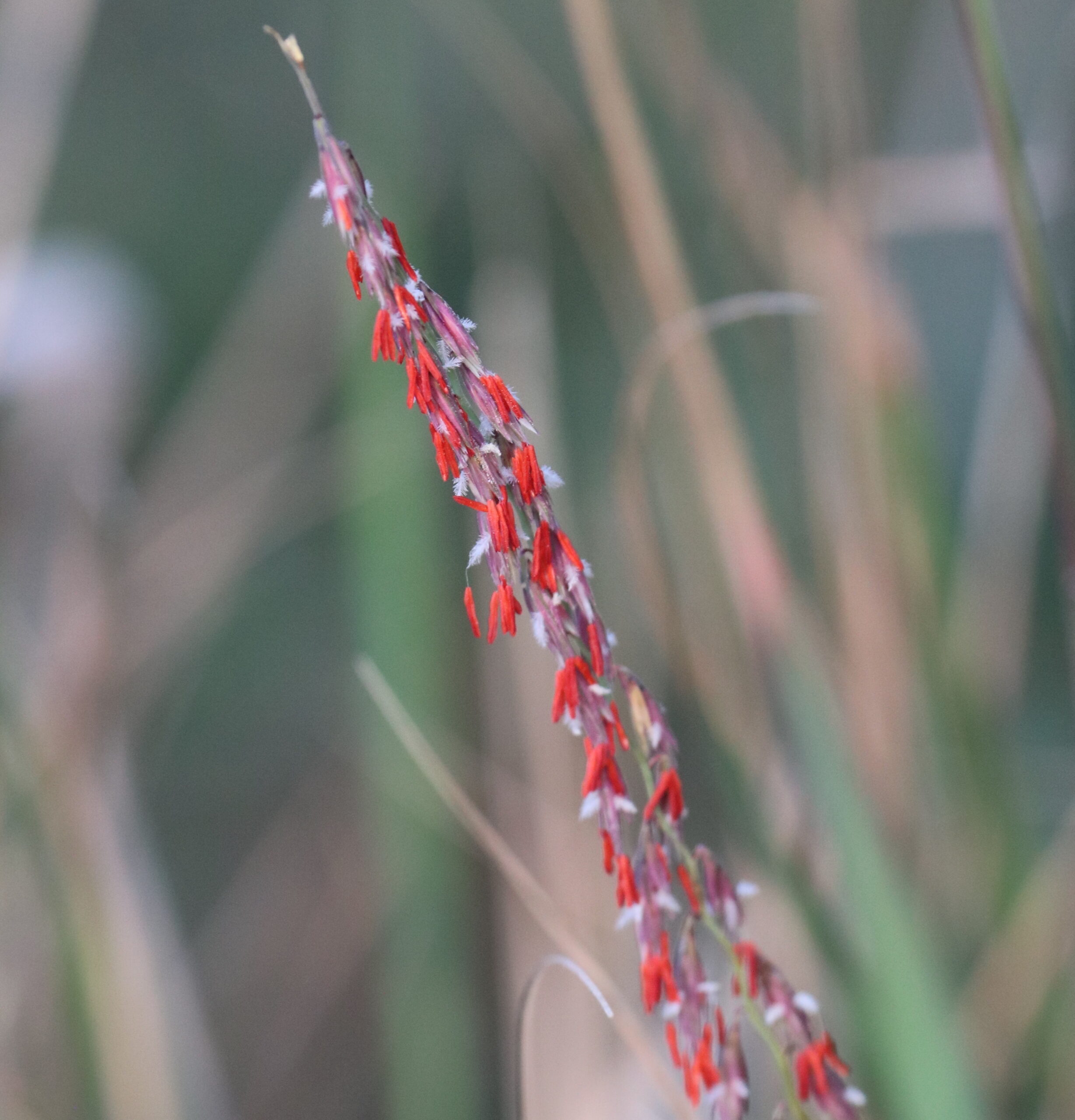
Sideoats grama (Bouteloua curtipendula)
The State Native Pepper of Texas is chiltepín. Also called chile pequin, bird pepper, and turkey pepper, this native pepper is known as “the mother of all peppers.” Its unique taste and bright red fruits make it a favorite addition to the garden! Individual plants may behave as annuals or perennials, and seeds are readily spread by birds who love eating the peppers, especially Mockingbirds. The peppers can be eaten fresh or dried; although they’re small, they’re flaming hot in taste.
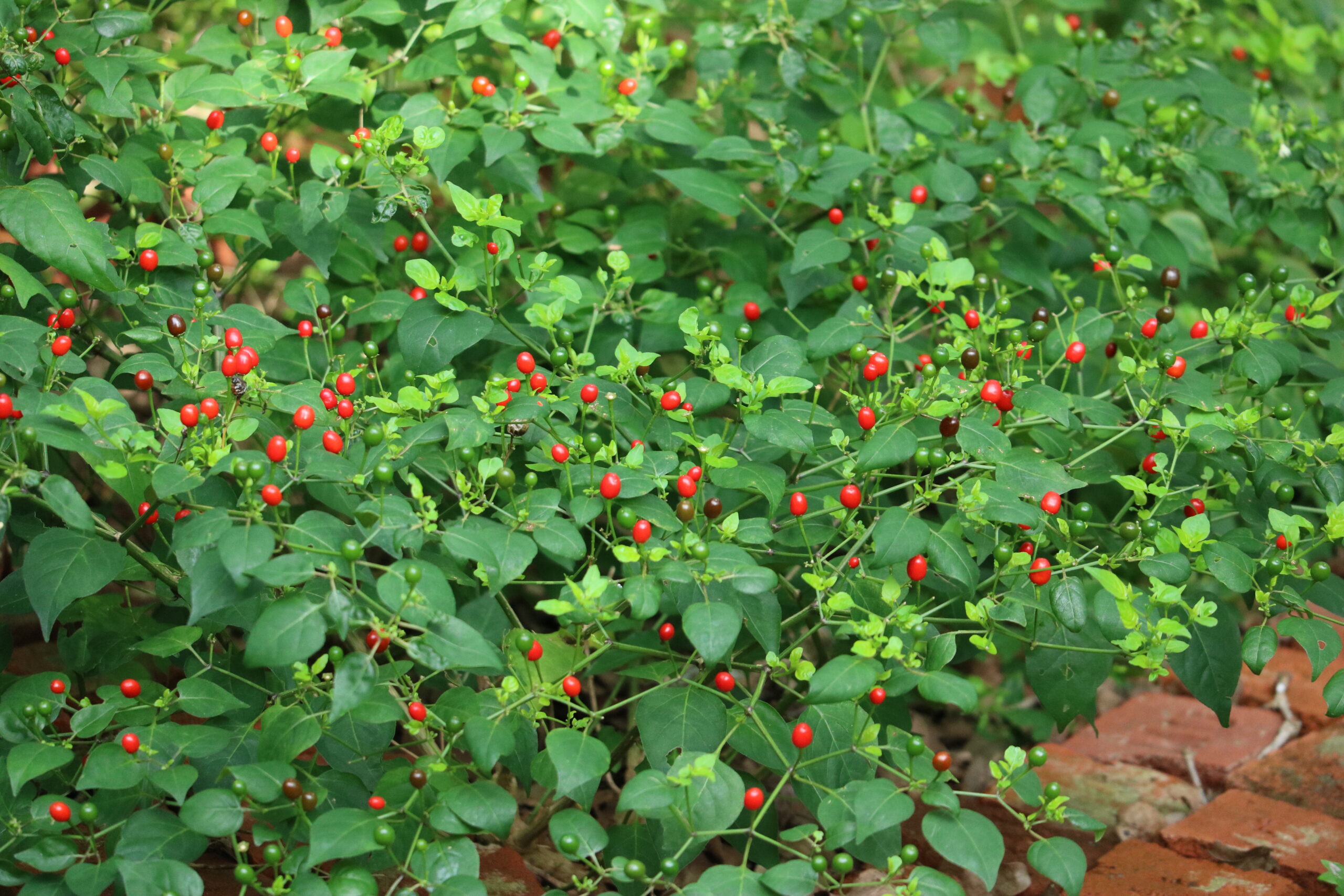
Chiltepin (Capsicum annuum glabriusculum)
Want to become a native plant champion? Take some time this month to visit a River Authority park or trail and learn about the native plants around you!
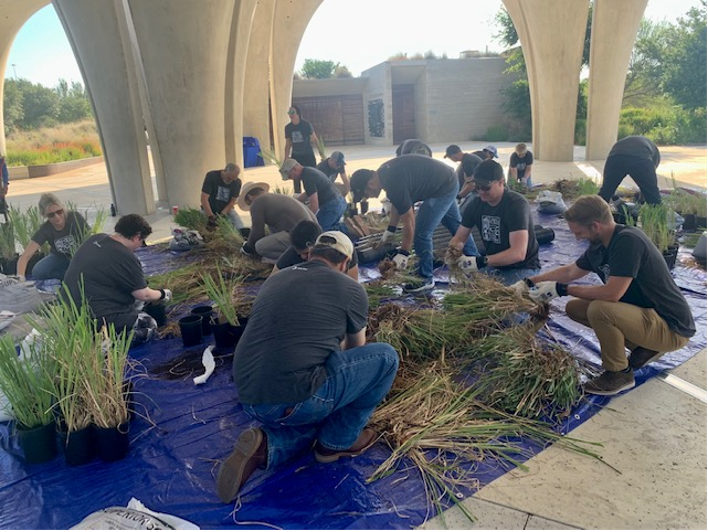
You can also become a River Authority River Warrior! River Warrior volunteers help the River Authority’s Watershed & Park Operations team with ecosystem restoration activities like planting native grasses and trees, removing invasive species, pruning, mulching trees and helping maintain native habitats at Confluence Park or along the Mission Reach.
Spring is the perfect season for realizing the potential of gardening with these beneficial species.By celebrating and caring for native plants, we are helping improve the health of our creeks, rivers, and our local communities.

